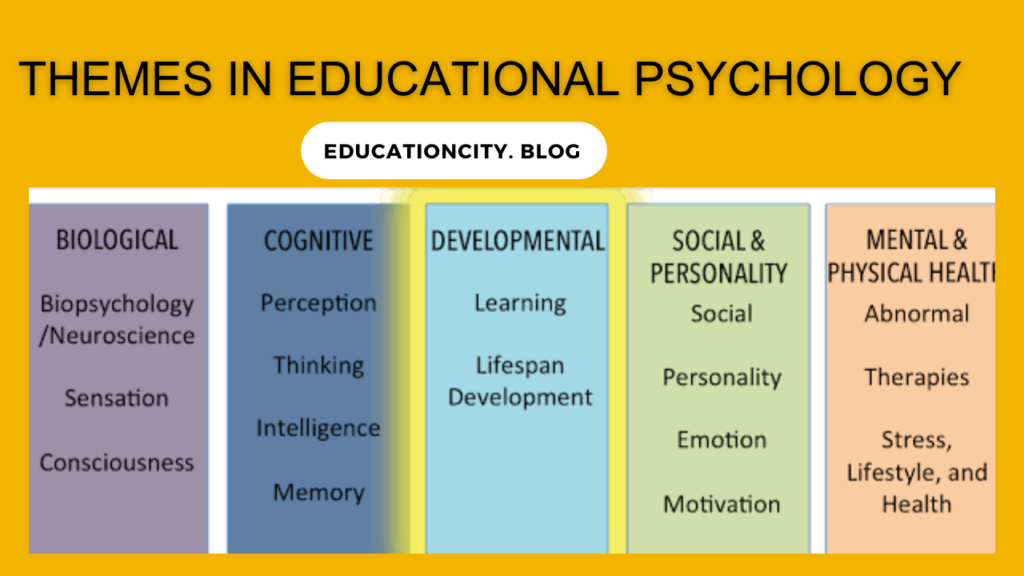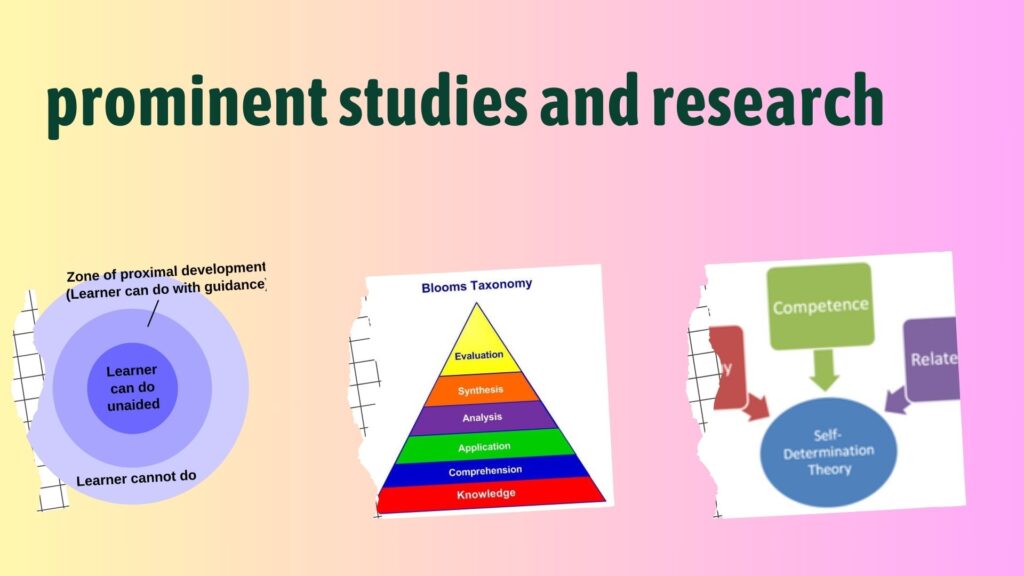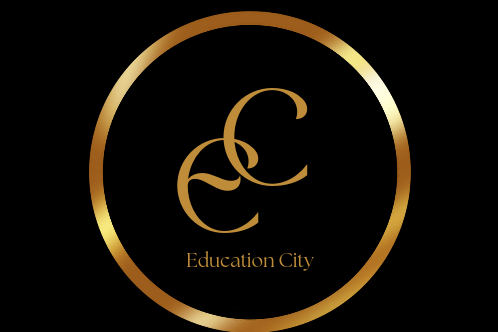journal of educational psychology
journal of educational psychology tells us that Educational psychology is an exciting field that explores the complexities of human learning and development in an educational context. It explores how students learn, how they retain information, and how teachers can improve their teaching methods to increase learning outcomes.
Understanding Educational Psychology:
Educational psychology is the study of how people learn and develop in educational environments. It examines the cognitive, social, and emotional factors that influence learning, with the goal of improving educational practices and outcomes for students of all ages.
Key Themes in Educational Psychology:
jornal of educational psychology deals with following themes in educational development

Cognitive Development:
Cognitive development refers to the process of acquiring knowledge, understanding, and problem-solving skills as an individual grows and matures. It covers various domains including memory, attention, language, reasoning and cognition.
Piaget’s stages of cognitive development (sensory-motor, pre-operational, concrete-operational, formal-operational) outline important milestones in this process, emphasizing that children develop their own understanding of the world around them. How to develop thinking and understanding. Factors such as genetics, environment, education, and social interaction significantly influence cognitive development.
Motivation and Learning:
Movement and learning are inseparable companions in the journal of educational psychology. Motivation acts as a driving force for individuals to acquire knowledge and skills. It is the spark that ignites curiosity, enthusiasm and determination to engage in the learning process.
Whether motivated by intrinsic desires or extrinsic rewards, motivation motivates active participation and sustained effort. In the realm of education, it’s important to understand what motivates the learner—whether it’s personal growth, career aspirations, or a genuine interest in the subject.
Learning Styles and Individual Differences:
Learning styles and individual differences are a kaleidoscope of individuality in the realm of education. Each individual has a unique approach to learning, influenced by their cognitive preferences, sensory perceptions, and personality traits.
These learning styles can range from visual, auditory, and kinesthetic preferences to a more complex combination of strategies that individuals use to absorb and process information.
Additionally, understanding and accommodating the different speeds at which people learn, their prior knowledge, and background experiences are important aspects of addressing individual differences.
Social and Emotional Development:
Social and emotional development refers to the development and refinement of an individual’s abilities to understand, express, and manage emotions, as well as to engage effectively with others in a variety of social contexts.
This journal of educational psychology tells us that developmental process is critical to forming relationships, empathy, and making responsible decisions.
It begins in early childhood and continues throughout life, influenced by experiences, interactions and cultural factors.
Effective social and emotional development equips individuals with the skills to navigate interpersonal relationships, adapt to change, and cope with stress.
It is an essential foundation for overall well-being, mental health, and success in both personal and professional spheres.
Instructional Strategies and Classroom Management:
Teaching strategies and classroom management are the pillars of effective teaching. Instructional strategies include a variety of methods used to engage, guide, and facilitate learning experiences for students.
These strategies can range from lectures and group discussions to hands-on activities and multimedia presentations, tailored to the topic and learners’ needs.
Classroom management, on the other hand, involves creating and maintaining an environment conducive to learning by effectively addressing clear expectations, routines, and behavioral challenges.
Effective classroom management ensures a positive environment for learning, allowing students to focus on lessons, participate actively and reach their full potential.
Optimally balancing these two aspects leads to a rich educational experience for both teachers and students in journal of educational psychology.
Prominent Studies and Research:

The Zone of Proximal Development (ZPD) by Vygotsky:
Leo Vygotsky’s concept of the ZPD highlights the optimal level at which learning occurs, well beyond an individual’s current capacity. This has important implications for educational strategies in journal of educational psychology.
Bloom’s Taxonomy of Educational Objectives:
Developed by Benjamin Bloom, this taxonomy classifies learning objectives into cognitive levels, helping teachers create targeted lesson plans and assessments.
Self-Determination Theory (SDT):
SDT focuses on intrinsic motivation, emphasizing that people are most motivated when they feel competent, autonomous, and connected to others.
Impact on educational practices:

Educational psychology significantly influences teaching methods, curriculum development, and educational policies. By applying principles from this field, educators can create more effective lesson plans, develop instruction for diverse learners, and foster a positive learning environment.
As we continue to explore and integrate findings from this field into educational practices, we move closer to creating an inclusive, stimulating, and effective learning experience for all students.
Conclusion:
Journal of educational psychology tells us that Educational psychology provides valuable insights into the learning process, allowing teachers to adapt and improve their teaching practices.
As we continue to explore and integrate findings from this field into educational practices, we move closer to creating an inclusive, stimulating, and effective learning experience for all students.
Read more European Journal of Psychology of Education:
Read more how to cancel psychology today profile: 7 step-by-step guide

Pingback: Lifelong Learning:10 powerful tips to Stay Curious and Keep Growing | Education City